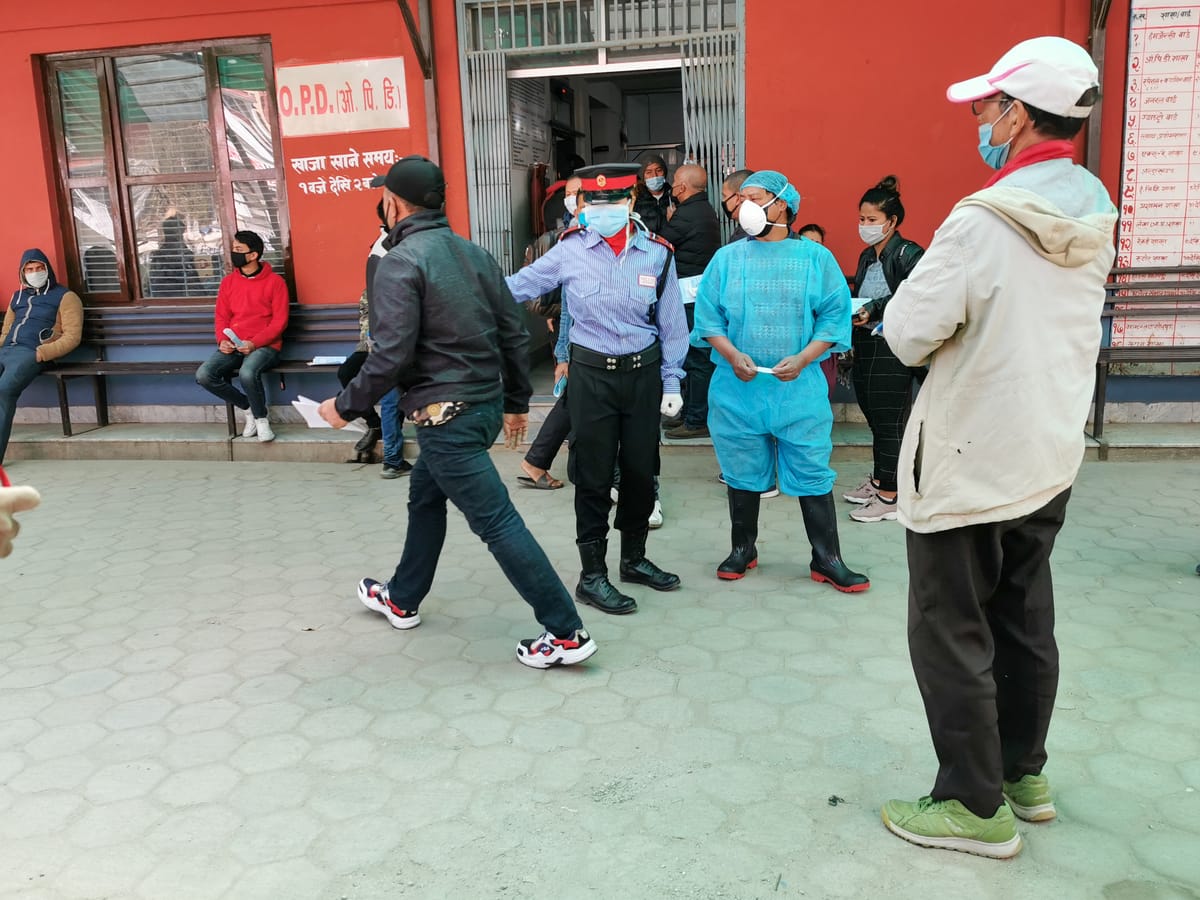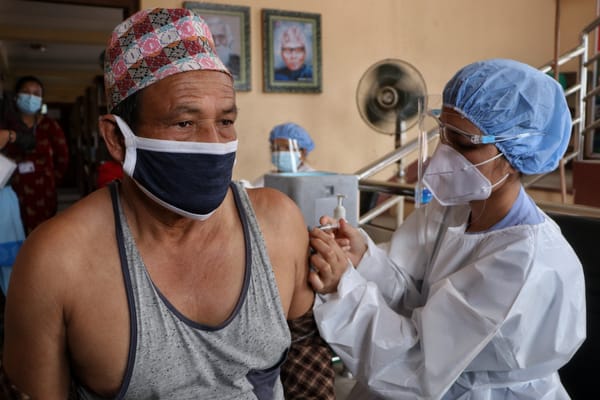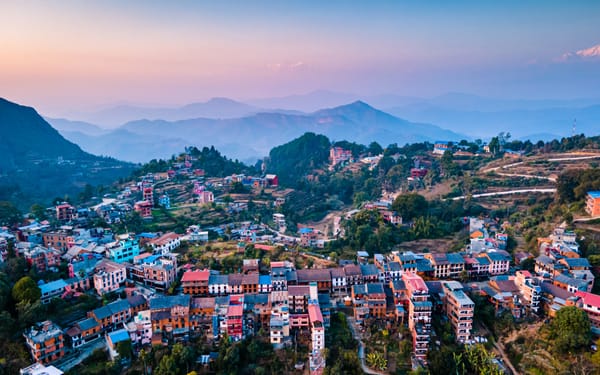Malla Medical’s Vision: Building Hope in the Hills of Nepal

In the rugged hills of Nepal, where winding trails replace roads and mountain peaks cut into the sky like ancient guardians, life is both beautiful and brutally fragile. The villages nestled in these hills tell a story that is as old as the land itself — one of resilience, tradition, and quiet endurance. But beneath that endurance lies a quiet crisis: the absence of basic healthcare.
For millions of people in rural Nepal, access to a clinic, a doctor, or even basic medical advice is a distant luxury. A simple infection can turn deadly. A childbirth complication can mean tragedy. A broken bone can alter the course of a life. Here, geography is not simply scenery — it’s a barrier to survival.
It is in this challenging landscape that Malla Medical was born. Not out of charity, but out of necessity. Not to offer temporary relief, but to build a permanent bridge between the health system and the people who have long been left behind.
The Reality of Rural Nepal
While Nepal’s cities have seen rapid development, rural communities remain deeply underserved. Roughly 80% of Nepal’s population resides outside of urban centers. In many remote districts, healthcare infrastructure is limited or nonexistent. Clinics may exist in name, but are often shuttered, poorly supplied, or staffed by untrained personnel. Ambulances cannot navigate the narrow, rocky trails that weave through mountain villages. Helicopter evacuations are too expensive for most families, leaving them at the mercy of time and terrain.
Many health workers avoid rural postings because of poor salaries, harsh living conditions, and professional isolation. For the villagers, this means relying on untrained traditional healers, trekking for hours or days to reach care, or simply enduring illness in silence.
The consequences are predictable and tragic. Nepal still has one of the highest maternal mortality rates in South Asia. Children under five die from preventable diseases like diarrhea and pneumonia. Chronic conditions go undiagnosed and untreated. Mental health needs remain largely unaddressed.
But while these problems are severe, they are not insurmountable. They are solvable — not with one-time missions, but with sustained, locally driven solutions.
The Birth of Malla Medical
The story of Malla Medical begins with personal loss. Founder Alexander de Royal lost a loved one in rural Nepal due to the unavailability of even the most basic medical care. The death was not an isolated event. It reflected a systematic failure that thousands face each year.
That tragedy planted a seed — a fierce determination to change the outcome for others. In 2023, Malla Medical was founded with a clear vision: to bridge the healthcare gap in Nepal’s rural communities by designing scalable, sustainable, and community-led healthcare models that meet people where they are.
At its core, Malla Medical believes that healthcare should not stop where the paved roads end. It should extend into every village, across every ridge, and through every valley.
Listening First, Leading Next
Malla Medical’s work begins not with assumptions but with listening. Before launching any program, the organization conducts extensive field research — walking the same paths villagers walk, speaking with local leaders, observing clinics, and listening to patients and health workers.
Through this ground-level research, we uncover the nuanced barriers that prevent care: language gaps, cultural norms, logistical roadblocks, and policy shortcomings. We don’t impose solutions; we co-create them with the communities we serve.
We believe that the people who live in these villages know best what works for them. Our job is to amplify their voices, build capacity, and provide resources they often lack.
Building Sustainable Solutions
At Malla Medical, we understand that helicopters and outside specialists aren’t scalable solutions for rural healthcare. Our work focuses on building long-term systems that are:
- Locally owned
- Culturally appropriate
- Financially sustainable
- Technically feasible
Here are some of our key initiatives:
1. Mobile Health Units
For communities unreachable by vehicle, we deploy mobile health teams that hike into remote villages on scheduled rotations. These teams carry diagnostic tools, medications, and emergency supplies, providing primary care directly to the people.
2. Training Community Health Workers
We identify and train local health volunteers who can deliver basic care, recognize danger signs, and coordinate referrals. These community health workers serve as trusted liaisons between formal healthcare systems and their neighbors.
3. Telemedicine Access
In areas with limited but growing internet access, we are piloting telemedicine hubs powered by solar energy. These stations allow villagers to consult with physicians in Kathmandu or even abroad, expanding the reach of professional care without forcing families to leave their villages.
4. Data-Driven Advocacy
We systematically collect health data to identify gaps, measure outcomes, and influence policy decisions. Our rural health mapping project is creating one of Nepal’s first comprehensive datasets on village-level healthcare access and needs.
5. Public Health Education
We are developing health education materials in local languages and dialects, using culturally sensitive approaches to teach communities about hygiene, nutrition, chronic disease prevention, and maternal care.
Beyond Treatment: Empowerment
Our mission is not simply to treat illness but to empower communities to own their health future. When a village has trained health workers, locally adapted education, and reliable access to essential services, it becomes self-reliant. It breaks free from cycles of crisis.
Healthcare isn’t just about medicine — it’s about dignity, stability, and hope. It allows parents to see their children grow, farmers to continue working their land, and elders to age with grace. It allows communities to thrive economically and socially.
Partnership, Not Paternalism
Malla Medical operates with the belief that real change comes from partnership, not paternalism. We work hand-in-hand with:
- Local municipalities
- Community leaders
- Nepalese healthcare providers
- International medical volunteers
- Universities and researchers
- The Nepali diaspora
By fostering collaboration, we build systems that are not dependent on foreign aid but strengthened by shared expertise and local leadership.
The Road Ahead
While our work has already made a difference in multiple districts, we know that we are only at the beginning. In the coming years, Malla Medical plans to:
- Expand our mobile health units to reach more remote regions
- Train hundreds of new community health workers
- Partner with universities to create rural health fellowship programs
- Advocate for national policy reforms that prioritize rural health investment
We envision a Nepal where no one dies because care was too far away. A Nepal where rural children grow up with the same chance at a healthy future as those born in the city.
Hope is a System We Build
Hope is not an abstract concept. It is a system. It is the infrastructure we build, the education we deliver, and the partnerships we forge. It’s the mother who no longer fears childbirth, the elder who receives proper treatment, and the child who survives an illness that once would have taken them.
Malla Medical’s vision is clear: to build a healthcare system that does not end at the edge of a city but stretches into every corner of Nepal’s hills, regardless of how difficult the journey may be.
In these hills, where life clings to the mountainside and communities survive against great odds, we see not helplessness but strength. And with the right investment in health, that strength can flourish.
At Malla Medical, we believe that the most remote communities deserve the most determined commitment. Where the road ends, our work begins. Because every life matters. Because hope belongs in every village.



